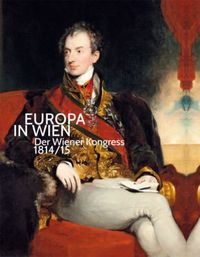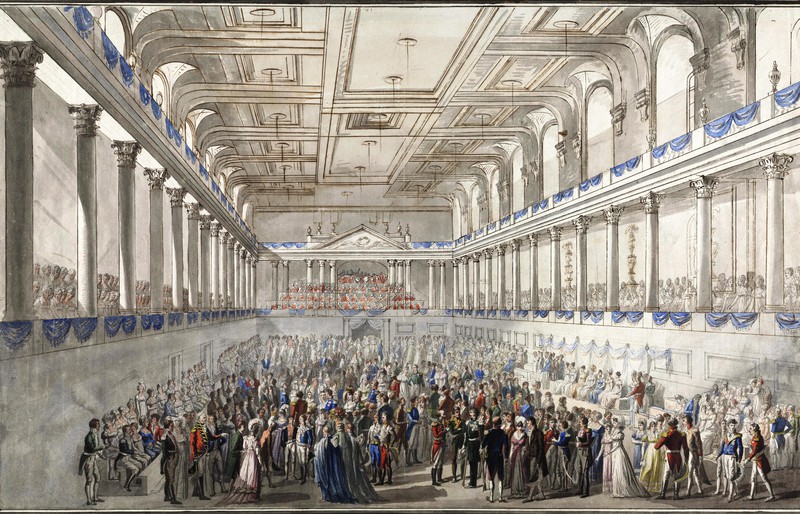Michael H. Hardern
Operetta Research Center
17 March, 2015
You all know that the Congress of Vienna in 1815 is the historical backdrop to quite a few famous operettas and operetta films. The two most well-known are probably Wiener Blut (1899) with music by Johann Strauss and a libretto by Victor Léon/Leo Stein, and the film Der Kongress tanz (1930) directed by Erik Charell with music by Werner Richard Heymann. Now, the Belvedere museum in Vienna has dedicated a grand new exhibition to this Congress to mark the 200th centenary.

Cover of the catalogue “Europa in Wien” that accompanies the exhibition at the Belvedere.
Last week-end, Isabella Sommer talked about the real people at the Congress and their operetta equivalents in Wiener Blut at the conference Tanz-Signale at the Vienna University, a three-day event organized by the Wiener Institut für Strauss-Forschung. She pointed out that the various diplomats appearing in act 2 of Wiener Blut are all famous diplomats, or their names are very close to those of real-life diplomats. There had been a grand exhibition just prior to the production of this last Strauss operetta, and it’s likely that the librettists saw it and were inspired by it. (As all good librettists always are by current events.)

A scene from the real Congress of Vienna in 1815, show at the Belvedere exhibition.
Many of these characters discussed by Isabella Sommer can be seen in portraits and prints at the current exhibition in the Belvedere. It is, however, not an operetta exhibition but a political one.
The focus is on European history; still, anyone interested in the various Congress of Vienna operettas will find many interesting and new aspects at the Belvedere.
The catalogue Europa in Wien is available for 45 Euros and contains essays that touch upon the operetta connection.
Isabella Sommer’s fascinating talk will probably be published by the Wiener Institut für Strauss-Forschung, together with Kevin Clarke’s talk on Wiener Blut and gender models and Barbara Denscher’s presentation of the life and oeuvre of Victor Léon. (Her fully fledged biography is due later this year.) A short sketch of Léon’s life can also be found in the new book by Marie-Theres Arnbom, Damals war Heimat. There, Miss Arnbom also presents the lives of the other family member of the Hirschfeld/Léon dynasty, showing that the Wiener Blut librettist was far more modern than many people today care to admit in combination with that Strauss operetta – a modernity that was very apparent at the Tanz-Signale, also in the talks by Clarke, Denscher and Marion Linhardt.
For more information on the Belvedere exhibition, click here.
